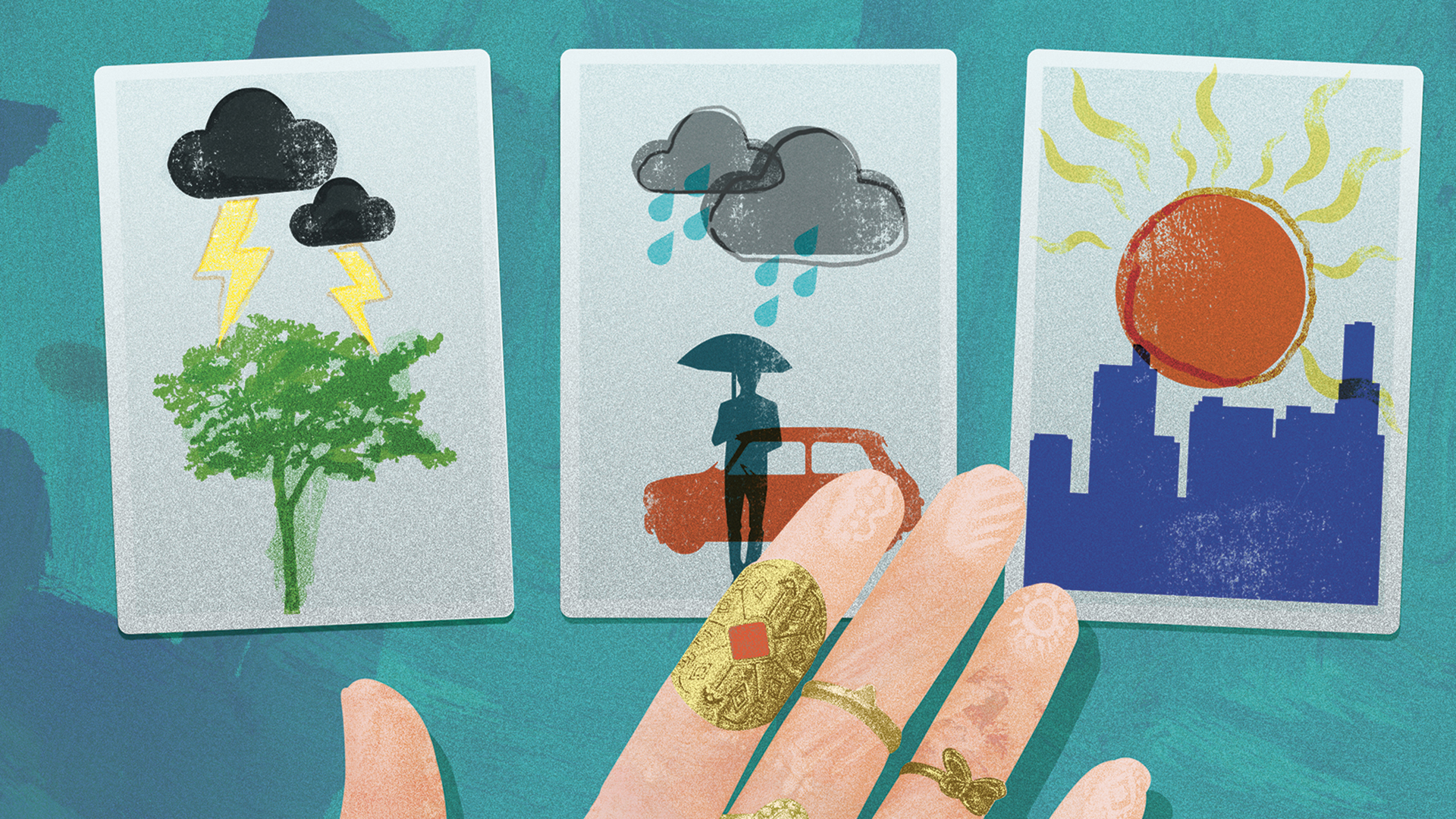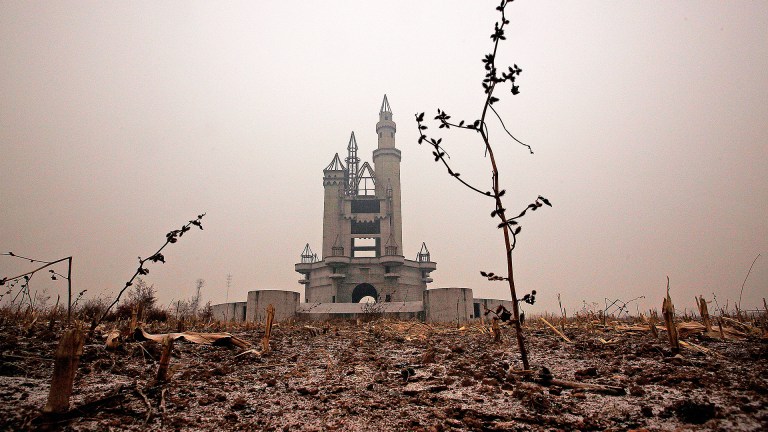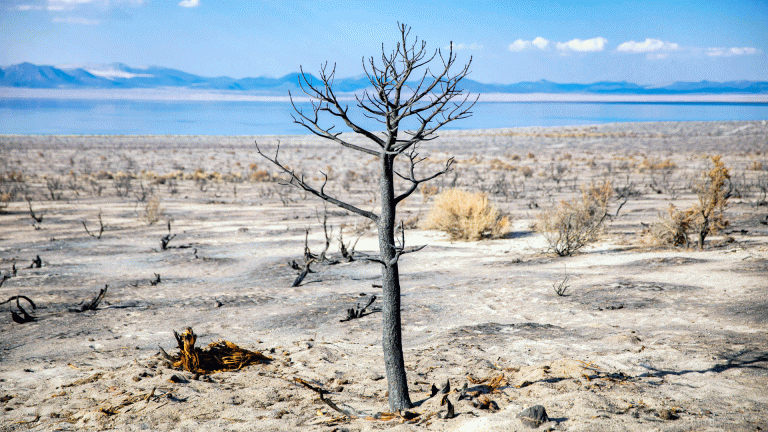On a Sunday afternoon in the fall of 2012, I was sitting at home with my infant son, idly thumbing through Twitter, when – seemingly all of a sudden – every meteorologist went into a tizzy. The latest run of something called ‘the European model’ had just arrived, and its news was dire, especially for those of us in New York City: in eight days a storm would come. This was odd, I thought. The sky outside was clear, and it would be for a week. But the sky on the screen was filled with a storm that didn’t yet exist. How did the meteorologists know?
It seemed to me that an eight-day prediction was different not only in degree but in kind. The meteorologists were not merely watching this storm – soon to be called Superstorm Sandy – through the space-based camera of a satellite, extrapolating its next move. Instead, their forecast felt more like time travel, a daily alchemy that transformed the sky of the present into the sky of the future – and which we all access as a matter of routine. I understood that meteorologists use computer simulations for weather forecasting. But when – and how – had they gotten so good?
In the seven years since, I have written a book, The Weather Machine: How We See Into the Future, that ponders that question, by tracing the astonishing development of the often unheralded (if not outright insulted) technology of the weather forecast. What I learned was that meteorologists have gotten a bad rap. Rather than being wrong half the time, they have quietly developed the ability to not only predict the weather with increasing accuracy, but to continually improve those predictions.
The measure meteorologists like to brag about is a ‘day a decade’. It means that with each passing decade they are able to skilfully predict the weather one day farther into the future, so that a six-day forecast today is as good as a five-day forecast was a decade ago; a five-day forecast today is as good as a three-day forecast two decades ago; and, most dramatically, today’s six-day forecast is as good as a two-day forecast in the 1970s. That improvement is thanks to the weather models, but their improvement in turn relies on nearly every major invention of the last three centuries, foremost among them Newtonian physics, telecommunications, spaceflight and computing. ‘The weather machine’, as I began to call this system, is a wonder we treat as a banality. It is a kind of superpower, easily among humanity’s greatest adaptations to life on Earth.
We reap its benefits in ways large and small. Forecasters couldn’t make Europe cooler during last month’s record-breaking heatwave, but having five days warning gave everyone – especially the weak and vulnerable – more time to prepare. When Cyclone Fani struck India in May, authorities had the notice, and the confidence, to evacuate a million people from its path. (A similar storm killed more than 10,000 in 1999.) I recognise that there’s a certain irony to the fact that we have developed this remarkable new skill just in time for a new era of weather extremes. It is small consolation.
The clearer the picture of the future becomes, the more it matters that we act upon it
More worrisome is that the pressures of climate change will fragment the global cooperation upon which today’s weather forecasts depend. The best weather models are global models: they use global data to create global forecasts, with every nation on Earth giving a little and getting back a lot. Their everyday exchange rests on a quiet system of weather diplomacy that dates back nearly 150 years, all the way to the first meeting of the International Meteorological Organization in Vienna in 1873.










